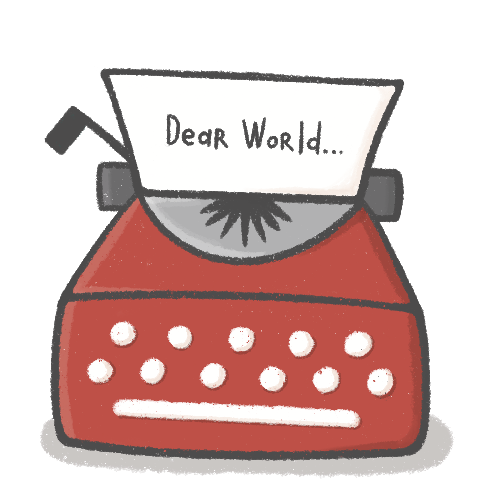Okay, so I recognize that you might not imagine the term, “Cage Match” as a descriptor of your writing process.
But it will all make sense in a minute. I swear!
We all get frozen sometimes when we are writing.
A few weeks ago, I talked about how that freezing sensation has nothing to do with Writers’ Block, so what does that leave us with? How do we deal with it, if we can’t blame it on the inspiration lottery?
No worries. I have an answer for you.
[click_to_tweet tweet=”If you can’t write today, your brain is probably in the middle of a violent cage match…with itself.” quote=”If you can’t write today, your brain is probably in the middle of a violent cage match…with itself.”]
A cage match is roaring away in your head when you sit at the keyboard (or notebook), and there is absolutely no way you will be able to write comfortably until you calm that madness down.
Get those two fighters back into their corners and call for some order up in here.
I don’t buy into the idea that you have to either be a creative person or a rational person.
Yeah, yeah. We all love taking personality quizzes. Who here hasn’t clicked on a “What your favourite toilet paper brand says about you” or “Which Teenage Mutant Ninja Turtle are you” link?
We’ve all done it, and there’s a reason: it’s comforting to categorize ourselves. We like to think about ourselves in a pseudo objective – if a bit self-indulgent – way, and we like to be able to say, “I’m a part of the ___ team!”
“I’m a creative person! I’m right brained and proud of my instincts and explorative nature!” or “I’m a logical person! Left-brainer are way more sensible, and I never miss a detail!”
Categories. Teams. Comfortable ways to try to package our abilities and personalities up into something that makes more sense to us.
But we’re people – and one thing I know about people is that we rarely make sense.
Don’t get me wrong. I’ve been a major brain-team cheerleader in the past. Imma let you take a stab at which side of the brain I shook my pom-poms for.
I’ve always been categorized on the right-brain team, which is fair. I mean…I was a drama geek who sang in a garage band and wore gigantic green plaid pants I found at a thrift shop for 5$ (it was the 90s….gimme a break). I wrote weird poems like “Ode to Eating” and painted pictures of mermaids on my CD covers.
I was poster child for the right-brained teenager.
But I was also student council president, sang classical choral music in Carnegie Hall at age 14 and had a complex system for keeping track of my vinyl collection and the mixed tapes I made from them. They were Dad’s records to be honest, but I was a teenager…I thought they were mine.
[click_to_tweet tweet=”I was a kid who daydreamed HARD in class, but I was also a kid who made study notes with headings, sub-headings and flowcharts to categorize information and make it easier to remember. #TeamWholeBrain” quote=”I was a kid who daydreamed HARD in class, but I was also a kid who made study notes with headings, sub-headings and flowcharts to categorize information and make it easier to remember. #TeamWholeBrain”]
As an adult, my greatest achievements and successes have come to me when I embraced both sides of my brain.
And let them each have their own moment to shine.
Teaching, cooking, momming – heck, even as a park ranger – my greatest work has always come out when I let my creative side be creative and my rational side be rational.
But – and here is the real kicker – it only works when I give those two pieces of myself a specific job to do, and a specific time to do it.
Do you remember working in groups in school?
At first, you got super excited because you got to hang out with your best friend and gossip…until you had to do some actual work, and then it got a bit difficult, right?
I’ve seen this a lot lately as my younger daughter who is kind of a carbon copy of me has started taking on big projects and working here on them. There are certain friends she works really well with, while some others? It can get tense.
The partnerships and collaboration dynamics are the real project, these days.
One friend of Bri’s will let her creative steamroller personality totally lead. She doesn’t shut down Bri’s energy and encourages her to go with her vision, so the ideas they come up with are amazing and grand.
She’s cool with sitting back and letting Bri run the show…but she doesn’t reign in little Miss creative-pants when the project deadline really doesn’t allow for a 3D double-habitat model, and a video newscast on pretend location in the jungle (meaning…we need to build a set), AND a poster board with written material either.
It’s super cool that the right-brain got to come out and play, because all of those ideas made the end result super cool, but the left-brain probably should have come around first and set up some ground rules: some parameters for right-brain to play within, so that the project could happen smoothly and fairly – without everyone staying up way too late the night before the due date, or having to later redo important sections that got left out.
The other option – the one that goes even worse than that – is when a strong left-brain buddy comes into the project with just as much steam-roller mojo as Bri.
This happened just lately, and it was tough for the little Miss to handle; she had never gone head to head with a partner before who was willing to say, “No! My way.” They struggled hard.
All of their energy went into fighting over which way they should tackle the project…and it ended up being a really tough thing for their friendship, as well as their assignment.
How do we fix it? How do we get the Science project ready without coming to blows (or tears)?
So the best possible situation ended up happening with the first friend I mentioned – after that particular Science project bounced back with a note saying, “This project looks amazing, but they missed these key components from the rubric. They can work on them this week and hand it in on Monday for remarking.”
I sat with the girls and we did the left-brain, categorizing thing and planned who was going to do what and when and how. We made a plan, and we kept it totally rational and clear.
Then they each went off with their jobs and their plans, and it worked! They finished the whole thing with NO problems or confusion or stress. They knew what they had to do, and they knew what the parameters of their roles were. It was awesome.
So how do we get from a Grade 7 science project to a blog post or novel manuscript?
It’s all about letting your rational brain do the work it likes best, and then letting your creative brain do its happy-thing within the parameters your rational brain set already. They need to work together and stop fighting in your head…because that’s distracting, and really not effective.
[click_to_tweet tweet=”Set up your Writing Process to let your rational brain do what it’s best at: planning. Then get out of the way so your creative brain can play.” quote=”Set up your Writing Process to let your rational brain do what it’s best at: planning. Then get out of the way so your creative brain can play.”]
This is why the Writing Process is so important to me. It allows your rational brain to plan, research and outline your writing like a map (Prewriting), so that your creative mind can come back later and explore without getting lost.
You can have fun playing creatively (Drafting) within the plan your rational mind already set up, knowing that good ole left-brain will be back later to tidy up (Revising and Editing).
When you give your different sides specific jobs to do within the Writing Process, you are far more likely to have that clarity of vision that comes when the task at hand is clear. The decisions have been made in advance, and your passion for the subject you are writing about can come out naturally.
Have you ever felt like your brain was in a cage match with itself? Tell us in the comments below about a time your creativity needed a little rational guidance. Or what about the time your left-brain needed a little right-brain creativity.

Writing Process Cornerstone
Your Writing Process Matters. When a client or student of mine is struggling with any part of their writing, there are five things I examine in order to find the reason behind their difficulties. It’s like a doctor’s screening process, I imagine. The first place I look to help me diagnose and treat their writing…
Don’t Believe Impostor Syndrome; human value isn’t a competition.
Impostor Syndrome can affect anyone. But the experience of women, people of colour, and neurodivergent and disabled people with impostor syndrome should be viewed through an intersectional lens. Impostor Syndrome tends to describe high-achieving individuals who lack an ability to internalize their accomplishments and a persistent fear of being exposed as a fraud. Sound familiar?…
Your Writing Process Matters. Stop the Cage Match!
Okay, so I recognize that you might not imagine the term, “Cage Match” as a descriptor of your writing process. But it will all make sense in a minute. I swear! We all get frozen sometimes when we are writing. A few weeks ago, I talked about how that freezing sensation has nothing to do with Writers’…



